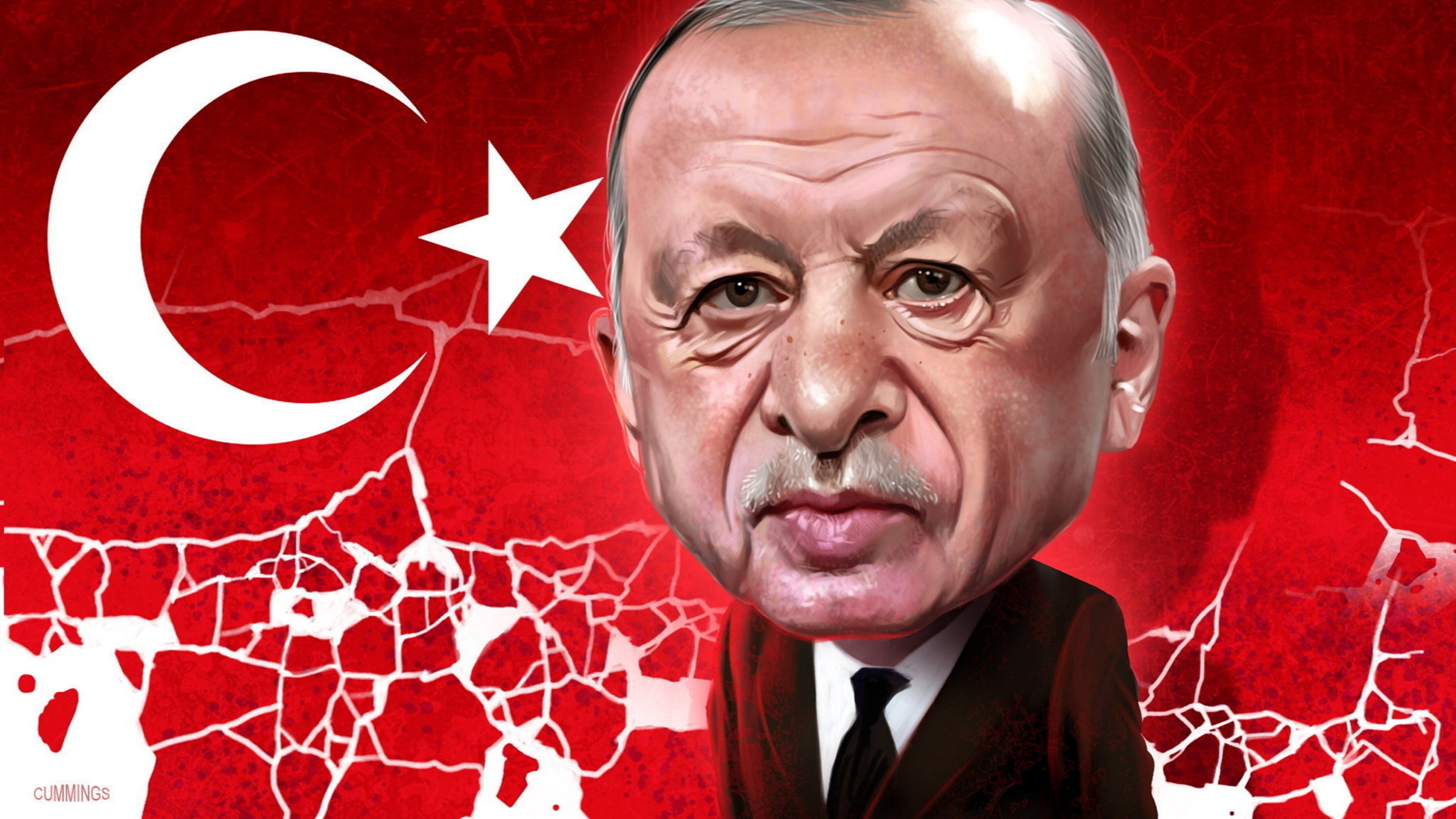
Can Turkey’s Erdogan Rebuild the Bridges He Has Burned?
Since his sweeping overhaul of Turkey’s political system in 2017, President Recep Tayyip Erdogan has cemented his near-total control over the country. Simultaneously he pursued an adventurous and bellicose foreign policy across the Mediterranean region, putting Ankara at odds with its NATO allies and the U.S. But amid regional shifts and the war in Ukraine, can Erdogan now rebuild the bridges he has burned?
Since his sweeping overhaul of Turkey’s political system in 2017, President Recep Tayyip Erdogan has cemented his near-total control over the country, even if he has undermined the country’s democracy to do so. Under his increasingly authoritarian rule, dissent has become more and more dangerous, with numerous opposition leaders, civil society figures and journalists having been arrested on what most observers consider to be politically motivated charges. Nevertheless, despite a tail-spinning economy and a disastrous emergency response to the February earthquakes, Erdogan maintained his grip on power in May’s presidential election.
At the same time, Erdogan has pursued an adventurous and bellicose foreign policy across the Mediterranean region, putting Ankara increasingly at odds with its NATO allies. After Turkey’s purchase of a Russian air-defense system in July 2019, Washington suspended Turkish involvement in the F-35 next-generation fighter plane program. Turkey’s repeated incursions into waters in the Eastern Mediterranean claimed by Cyprus, as well as its standoffs with Greek and French naval vessels in the region, further raised tensions and alarmed observers. And Ankara’s support for political Islamists since the Arab uprisings as well as its role in the Middle East’s various armed conflicts have put it at odds with the Gulf states and Egypt.
With U.S. President Joe Biden having restored a more conventional approach to U.S. foreign policy and alliance management, and amid a shift in the Middle East toward diplomatic engagement, Erdogan has more recently sought to smooth relations with Turkey’s allies and neighbors. The Russian invasion of Ukraine seemed to add urgency to that effort, but that hasn’t stopped Erdogan from playing a game of brinksmanship to gain concessions from Sweden in return for unblocking its membership applications to NATO. And none of the underlying causes of tension between Turkey and the U.S. and Europe have been resolved so far, meaning that a return to confrontation cannot be ruled out.
Meanwhile, Turkey’s involvement in Syria’s civil war increased Ankara’s leverage there, but at times pitted Erdogan against Russian President Vladimir Putin in the military and diplomatic competition to shape the end game of that conflict. Its involvement in the Libyan civil war on behalf of the United Nations-recognized Government of National Accord similarly put Turkey at odds with both Russia, which supports the forces of Gen. Khalifa Haftar, and Ankara’s European partners, which had sought to enforce an arms embargo on the country. Most recently, Turkey’s political and military support for Azerbaijan in its 2020 war with Armenia over the breakaway Nagorno-Karabakh region once again put it at the heart of a conflict with direct implications for Russia’s national security interests. Nevertheless, Erdogan has managed to maintain open channels of communication with Putin that he has tried to leverage into a mediating role in the war in Ukraine, at times with some success, as with the Black Sea Grain Initiative.
More recently, the tragic earthquake that struck southern Turkey, in addition to its human and material costs, dealt a heavy blow to Erdogan’s political brand. For the past 20 years, Erdogan has portrayed himself as the can-do, business-friendly leader responsible for Turkey’s economic growth and building boom. But corruption in the enforcement of seismic building codes as well as the poor showing by Turkey’s disaster-response agency exacerbated the damage caused by the quake. Turkey’s political opposition united ahead of May’s presidential and parliamentary elections in an effort to take advantage of Erdogan’s vulnerability—with many observers wondering whether he would relinquish power in the event he lost the election. That ended up being moot, though, as Erdogan won handily, even if the opposition did succeed in forcing a second-round run-off.




No comments:
Post a Comment
Note: Only a member of this blog may post a comment.